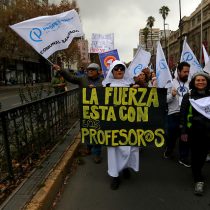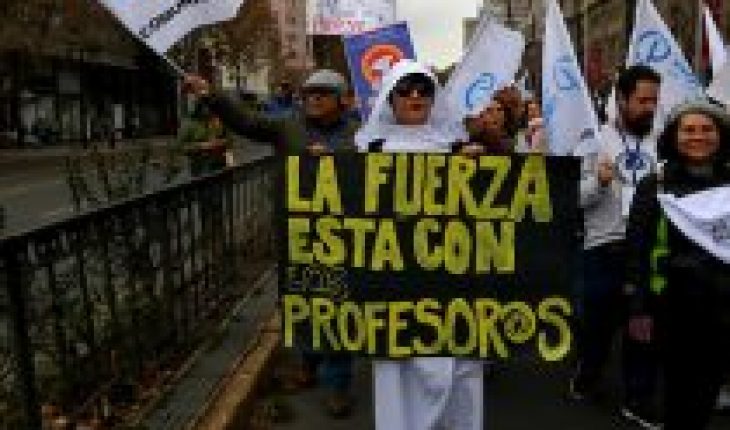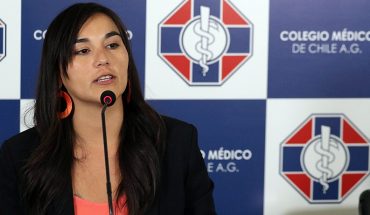
Mr. Director:
Every year’s eve, since the enactment of the Law creating the Teaching Professional Development System, pedagogy students who are one year away from finishing their careers give a test, the National Diagnostic Assessment, NDT, of a formative nature, in order to raise useful information for the races about their strengths and formative weaknesses, which will help them improve , and to support your students in the weakest dimensions before graduating. This evaluation is a titration requirement. It does not require a certain result, but it does require giving it up.
Such an assessment not only seems irrelevant in the current context of the crisis accumulated in the country, following the social outburst last October, which virtually paralyzed all the training processes and in the midst of the pandemic that forced the implementation of virtual training with high levels of complexity in its implementation, and which only recently begins to settle with a fragile balance , preparing for a second semester on equal terms. A failed end of the past semester, an atypical and demanding current semester, and a remnant of the year that is uncertain, set a scenario in which such an assessment loses all meaning and only adds unnecessary pressure on already extremely stressed students, trainers and careers. Even more considering that the results of the NDT are already beginning to be part of the accreditation criteria of the training programmes.
And it is in this context that this week it reaches the universities from the direction of CPEIP, the mineduct body responsible for this evaluation, a letter alerting about an error in the 2019 2019 NDT results reports recently sent to universities, removing responsibility to the State and holding the Department of Educational Informatics of UFRO, an entity that was awarded by tender the processing and reporting of results. The letter tells universities that a new report will be received by the end of the month.
It does not seem reasonable to attribute final liability to UFRO. The application of this assessment in these conditions this year does not seem reasonable. His suspension for contingency was sufficiently justified. The news of the error in the data is the drop that spills the glass. There are no conditions for its implementation, and the system requires a thorough review to restore the trust and responsibility of the State.
These are times when the urgency is to accompany and seek the development of the best possible training processes in these unthinkable and demanding circumstances. This is no time for pressures and measurements, let alone if confidence in the assessment has been broken, let alone if the most likely outcome, given the context, would be to relieve criticism of trainers and students who will once again fail to achieve, obviously, what is expected, despite the obvious efforts made. No one needs the detail of what we most likely did worse this year, all that we didn’t give the width in, except if the results processing system is in question. It is time to connect with the need for teacher training that requires support and confidence to close the best possible semester, to prepare the one that comes and give the best we have with what we have learned during this complex time. It’s not a year for measurements. It’s time to restore trusts, coats, professionalities, supports. And when it’s another time, rethink so much and so intense constant and overwhelming measurement. Meanwhile, the sensible so-called seems to be to review the evaluation system and generate conditions to restore confidence in it and its eventual contribution to improving the quality of training.
Andrea Ruffinelli, academic Faculty of Education of Alberto Hurtado University and adherents:
Alejandra Nocetti, UCSC; Alejandra Falabella, UAH; Alejandra Torres, Alicia Páez, UDP; Beatriz Fernández, U. of Chile; Bernardita Pertridis; Claudia Escobar, UAH; Claudia Araya, UAHC; Cecilia Alvarez, UAH; Francisco Salas, UCSH; Genevy Moreno, UAH; Javiera Figueroa, UAH; Isabel Plaza, UAHC; Katherine Olate, UAHM; Laura Zurita, UDP; Liliam Almeyda, UAH; Lina Peralta, UDP; Lorena Valdebenito, UAH; Luis Navarro, UAHC; Macarena Salas, PUC; Malba Barahona, PUC; M. Angélica Martínez UDP; M. Teresa Rojas, UAH; Magali Espech, UCSH; M. José Valdebenito, UAH; M. Jane Abrahams, UAH; Miriam Ferrando, UAHC; Natalia Kompen, UAHC; Nora Arce; Paloma Palomera, UMCE; Paula Alarcón, UAH; Pilar Guzmán, UAHC; Rosa Gaete, UAH; Roxana Hormazábal, UAHC; Sandra MoUBO; Solange Gorichon, UAH; Stephen Darwin, UAH; Sulvy Cáceres, UMCE; Tatiana Cisternas, UAH; Yanina Flavia UAH.





